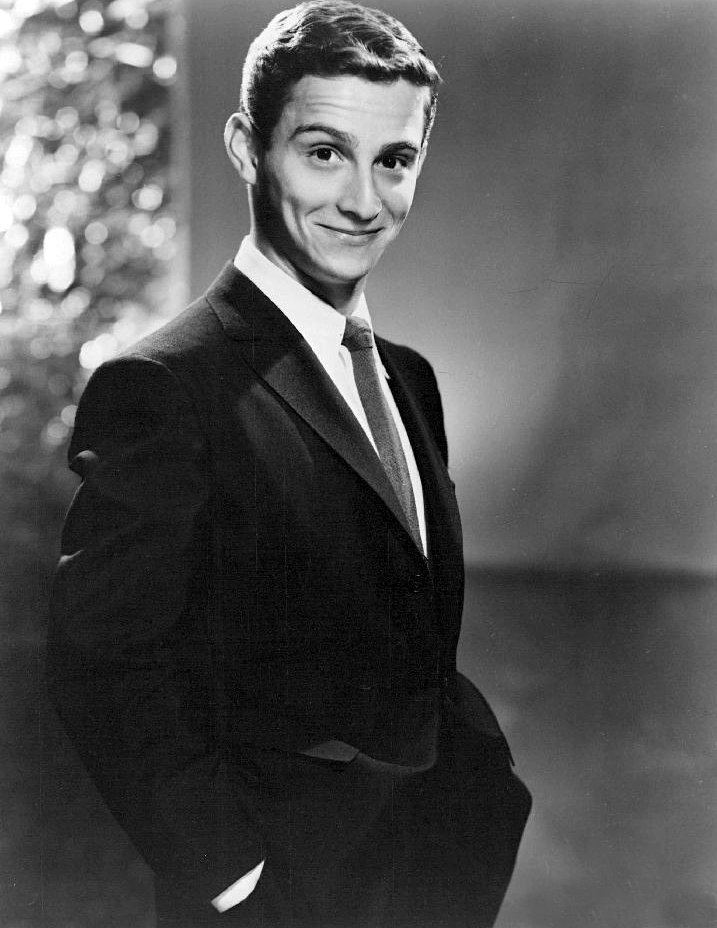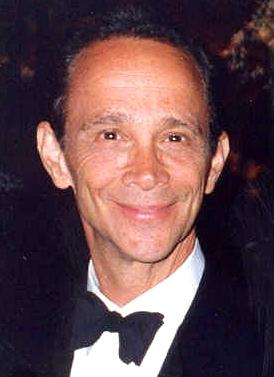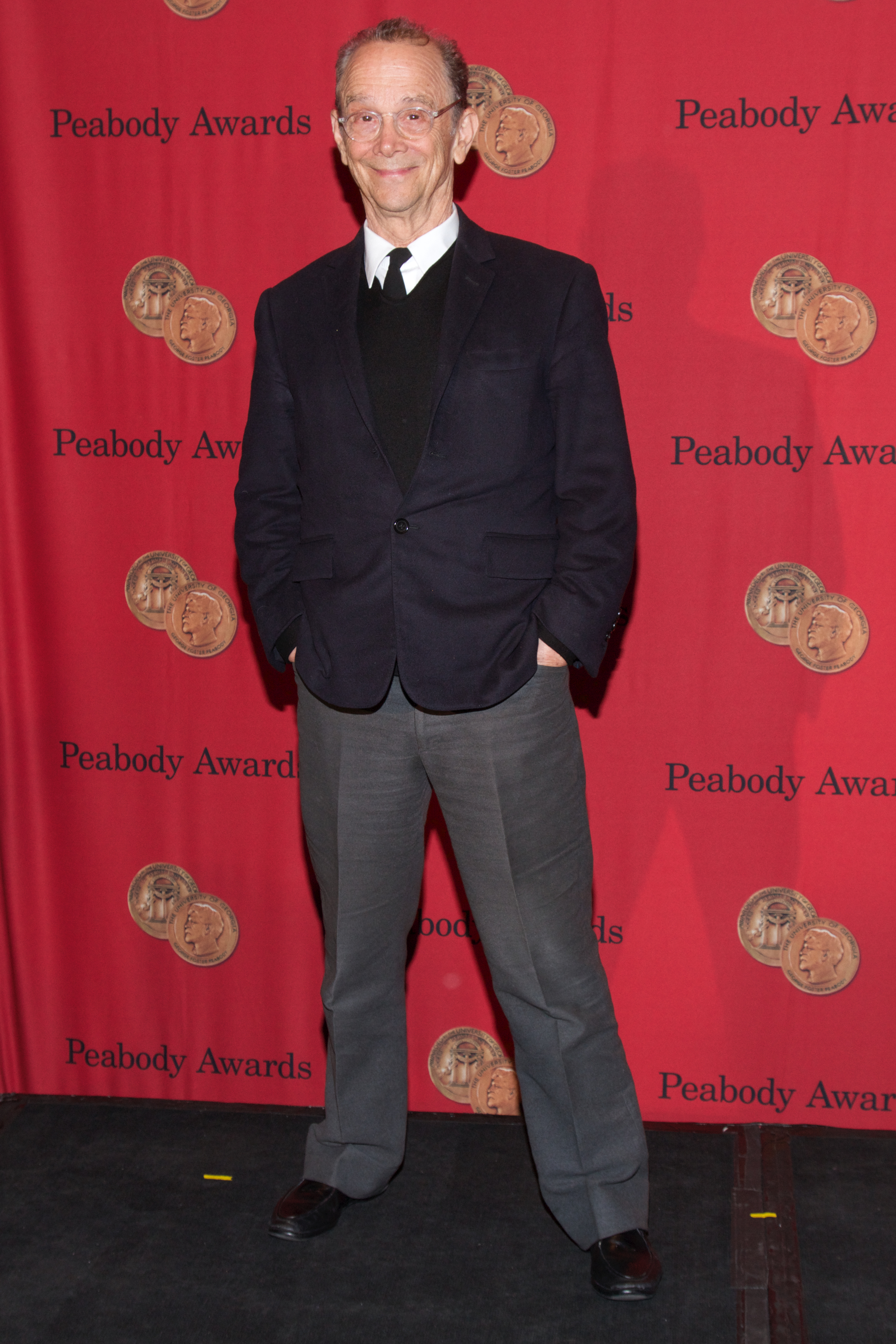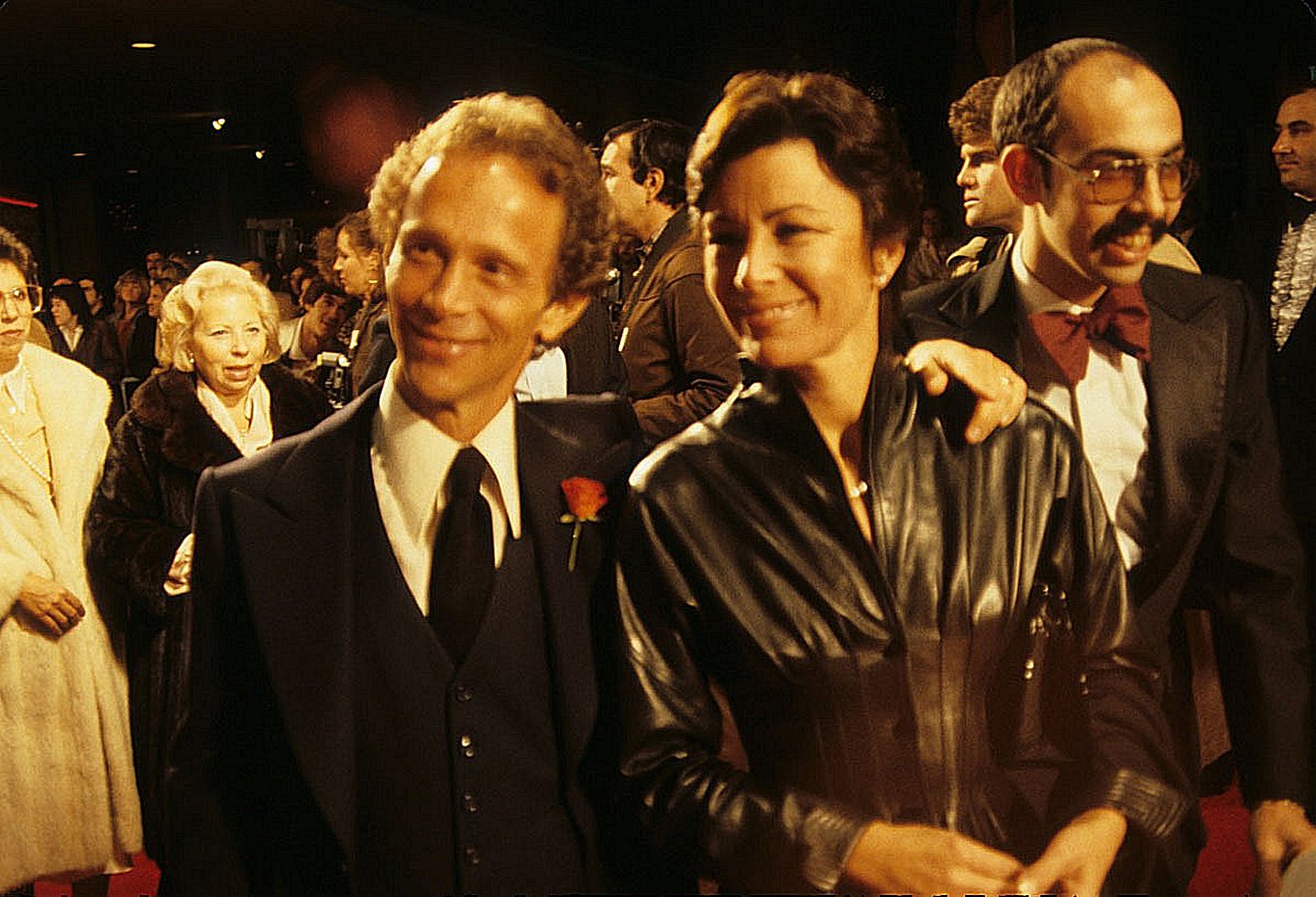1. Overview
Joel Grey (born Joel David Katz; April 11, 1932) is a highly acclaimed American actor, singer, dancer, director, and photographer. His multifaceted career spans over seven decades, marked by iconic performances in theatre, film, and television. Grey is best known for his Tony and Academy Award-winning portrayal of the Master of Ceremonies in the musical Cabaret and its 1972 film adaptation. His versatility is evident in a wide range of roles, from the enigmatic Master of Ceremonies to the Wizard of Oz in Wicked and the martial arts master Chiun in Remo Williams: The Adventure Begins.
Beyond his artistic achievements, Grey has made a significant social impact. His public coming out as a gay man in 2015, and his subsequent memoir, have contributed to increased LGBTQ+ visibility and acceptance within the entertainment industry and wider society. He has also played a crucial role in preserving cultural heritage through his direction of the critically acclaimed Yiddish-language production of Fiddler on the Roof. Throughout his career, Grey has been recognized with numerous accolades, including an Academy Award, a BAFTA Award, a Golden Globe Award, a Grammy Award, and multiple Tony Awards, including a Lifetime Achievement Tony Award in 2023, solidifying his legacy as a distinguished and influential figure in American performing arts.
2. Early Life and Background
Joel Grey was born Joel David Katz on April 11, 1932, in Cleveland, Ohio. He is the son of Goldie "Grace" (née Epstein) and Mickey Katz, a renowned actor, comedian, and musician. Both of Grey's parents were Jewish. He attended Alexander Hamilton High School in Los Angeles, California.
3. Career
Joel Grey's career spans over seven decades, encompassing a wide array of roles in theatre, film, and television, alongside significant contributions as a director and photographer.
3.1. Early Career
Grey began his performing career at the young age of 10 in the early 1940s, participating in the Cleveland Play House's Curtain Pullers children's theatre program. He appeared in productions such as Grandmother Slyboots, Jack of Tarts, and took on a lead role in the mainstage production of On Borrowed Time. By 1952, at age 20, he was already a featured performer at the famous Copacabana nightclub in New York City.
Early in his career, Grey decided to change his last name from Katz to Grey, reportedly due to the perceived stigma associated with a surname that clearly indicated his ethnicity. His Broadway acting debut was in Borscht Capades in 1951, where he was credited as "Joel Kaye". He returned to Broadway in The Littlest Revue in 1956 and later took on replacement roles in Neil Simon's Come Blow Your Horn (1961), the musical Stop the World - I Want to Get Off (1962), and Half a Sixpence (1965).
His professional television career commenced with appearances on The Colgate Comedy Hour from 1951 to 1954. In the late 1950s and early 1960s, Grey also appeared in several television westerns, including Maverick (1959), Bronco (1960), and three episodes of Lawman (1960 and 1961).


3.2. Breakthrough in Cabaret
Joel Grey achieved his breakthrough performance in 1966, originating the iconic role of the Master of ceremonies in the Broadway musical Cabaret, created by John Kander and Fred Ebb. His portrayal of the malevolent and sinister emcee of the Kit Kat Club garnered widespread critical acclaim, earning him the Tony Award for Best Featured Actor in a Musical at the 21st Tony Awards.
He reprised this acclaimed role in the 1972 film adaptation of Cabaret, directed by Bob Fosse. Although Fosse, who was brought in to direct the film, initially sought to recast the Master of Ceremonies, the studio insisted on Grey for the role. Fosse ultimately relented, despite initial tensions between them. For his performance in the film, Grey received numerous prestigious awards, including the Academy Award for Best Supporting Actor at the 45th Academy Awards in March 1973. His win was part of a near-sweep for Cabaret, which also saw Liza Minnelli win Best Actress and Fosse win Best Director, though the film lost the Best Picture Oscar to The Godfather.
Beyond the Academy Award, Grey also secured the BAFTA Award for Most Promising Newcomer to Leading Film Roles at the 26th British Academy Film Awards, the Golden Globe Award for Best Supporting Actor - Motion Picture, and Best Supporting Actor awards from the Kansas City Film Critics Circle, the National Board of Review of Motion Pictures, and the National Society of Film Critics. His achievement of winning both a Tony Award for the original stage performance and an Academy Award for the same role in the film adaptation places him among a select group of only ten individuals to have accomplished this feat.
3.3. Theatre Career
Following his success in Cabaret, Grey continued his extensive career on Broadway and Off-Broadway. He starred as George M. Cohan in the 1968 musical George M!, for which he received a nomination for the Tony Award for Best Actor in a Musical at the 23rd Tony Awards and won the Outer Critics Circle Award for Outstanding Performance. He also performed this role at The Muny in St. Louis, Missouri in 1970 and 1992.
Grey earned further Tony nominations for his roles as Charles VII in the play Goodtime Charley (1975) and as S.L. Jacobowsky in the musical The Grand Tour (1979). Off-Broadway, he appeared as Stony McBride in Marco Polo Sings a Solo (1977) at The Public Theater. In 1977, he also played the title role of Mikhail Platonov in the Williamstown Theatre Festival's production of Platonov.
In 1985, Grey portrayed Ned Weeks in the Off-Broadway production of Larry Kramer's The Normal Heart at The Public Theater. He reprised his role as the Master of Ceremonies in a 1987 US National Tour and Broadway revival of Cabaret. In 1991, he performed in the American Repertory Theater's production of When We Dead Awaken in Cambridge, Massachusetts. Later that year, he starred in New York Stage and Film's production of John Patrick Shanley's A Fool and Her Fortune.
He returned to Broadway as Amos Hart in the 1996 revival of the Bob Fosse musical Chicago, a satire on corruption in the criminal justice system and the concept of the "celebrity criminal". For this role, he received the Drama Desk Award for Outstanding Featured Actor in a Musical. He continued in this role for the US National Tour in 1997 and in both Broadway and West End productions in 1998. In 1999, he starred as Jack Donovan in Brian Friel's Give Me Your Answer, Do! mounted by Roundabout Theatre Company.
In 2003, Grey originated the role of the Wizard of Oz in the Stephen Schwartz Broadway musical Wicked, taking over from Robert Morse who had played the Wizard in the San Francisco tryout. The musical, based on Gregory Maguire's novel, features Grey alongside Idina Menzel and Kristin Chenoweth. For this role, he was nominated for the Outer Critics Circle Award for Outstanding Featured Actor in a Musical.
In 2011, Grey returned to Broadway as Moonface Martin in the Roundabout Theatre Company's revival of Anything Goes at the Stephen Sondheim Theatre. He also appeared in the 2016 Broadway revival of the Anton Chekhov play The Cherry Orchard, starring opposite Diane Lane and Chuck Cooper.
3.4. Film Career
Joel Grey has an extensive filmography, with notable roles across various genres. His early film appearances include About Face (1952) as Bender, Calypso Heat Wave (1957) as Alex Nash, and Come September (1961) as Beagle. His most celebrated film role was the Master of Ceremonies in the 1972 adaptation of Cabaret, which earned him an Academy Award.
In the mid-1970s, he appeared in Man on a Swing (1974) as Franklin Wills, The Seven-Per-Cent Solution (1976) as Lowenstein, and Buffalo Bill and the Indians, or Sitting Bull's History Lesson (1976) as Nate Salsbury.
A significant role in the 1980s was Master of Sinanju Chiun in the 1985 action-adventure film Remo Williams: The Adventure Begins, where he played Remo Williams' (Fred Ward) elderly Korean martial arts master. This role earned him a nomination for the Saturn Award for Best Supporting Actor and a second Golden Globe Award for Best Supporting Actor - Motion Picture nomination. His character, Chiun, became popular for memorable lines such as "Meat of cow kills" and "You move like a pregnant yak".

In the 1990s, Grey appeared in Steven Soderbergh's mystery thriller Kafka (1991) as Burgel, and made a cameo as himself in the Robert Altman film The Player (1992). He also narrated the animated film Tom and Jerry: The Movie (1992). The following year, he starred as Willy Stone in the Philip Haas drama film The Music of Chance (1993), which premiered at the 1993 Cannes Film Festival. Other films from this period include The Dangerous (1994) as "Flea", Venus Rising (1995) as Jimmie, The Empty Mirror (1996) as Joseph Goebbels, and My Friend Joe (1996) as Simon. He also appeared in Reaching Normal (2001) as Dr. Mensley.
In the 2000s, Grey continued to take on diverse film roles, including Oldrich Novy in the Lars von Trier film Dancer in the Dark (2000), Amos Babcock Bellamy in the musical film The Fantasticks (2000), and Phil in the dark comedy Choke (2008). More recently, he had a cameo role as a "Sunday" Legend in the Lin-Manuel Miranda-directed musical Tick, Tick... Boom! (2021).
3.5. Television Career
Joel Grey's television career began in the early 1950s with appearances on The Colgate Comedy Hour (1951-1954) and Pond's Theater (1954). He also appeared in various series such as Producers' Showcase (1956), Telephone Time (1957), and three episodes of December Bride (1957). He also hosted The Pat Boone Chevy Showroom for four episodes in 1957. In 1958, he appeared in The Court of Last Resort as Floyd Todd.
In the late 1950s and early 1960s, he took on roles in westerns like Maverick (1959), Bronco (1960), and Lawman (1960-1961). Other appearances from this period include The Ann Sothern Show (1960), Surfside 6 (1960), Westinghouse Playhouse (1961), and 77 Sunset Strip (1961). He also played Theodore "Laurie" Laurence in the 1958 television film adaptation of Little Women and appeared in Vacation Playhouse (1966) as Freddy Rockefeller.
In the 1970s, Grey appeared as George M. Cohan in the 1970 television movie George M!, and as Mike Jaeger in Ironside (1971). He was featured in Night Gallery (1972) and the television film Man on a String (1972). He also appeared as a celebrity guest on The $10,000 Pyramid (1973) and voiced Joshua Trundle in the 1974 television film 'Twas the Night Before Christmas. In 1974, he appeared as Gary in a segment of The Carol Burnett Show. In 1976, he was the guest star for the first episode of The Muppet Show, where he sang "Razzle Dazzle" from Chicago and "Willkommen" from Cabaret. He also appeared as a panelist for the television game show What's My Line? in the 1967 season, as well as being the first Mystery Guest during its syndication in 1968.
His television work in the 1980s included hosting Paddington (1981) and appearing in two episodes of Alice (1982). He also played Jack Point in the 1982 television film The Yeomen of the Guard and Aaron Diamond in the 1987 miniseries Queenie.
In the 1990s, Grey made guest appearances on series such as Matlock (1991) and the two-part series finale episode "Conundrum" of Dallas (1991), where he played Adam. He had a recurring role as Jacob Prossman on Brooklyn Bridge (1992-1993), which earned him a nomination for the Primetime Emmy Award for Outstanding Guest Actor in a Comedy Series at the 45th Primetime Emmy Awards. In 1995, he appeared as Caylem in the Star Trek: Voyager episode "Resistance" and as the Narrator/Wizard in The Wizard of Oz in Concert: Dreams Come True television film. He also appeared in two episodes of The Outer Limits (1999-2000) and as the Ghost of Christmas Past in the 1999 television film A Christmas Carol.

In the 2000s, Grey had recurring roles as the reptilian demon Doc in Buffy the Vampire Slayer (2001), Lemuel Idzik in the HBO prison drama Oz (2003), and Another Mr. Sloane in the ABC series Alias (2005). He guest-starred on Law & Order: Criminal Intent (2003), Crossing Jordan (2005), House (2006), Brothers & Sisters (2007) as Dr. Jude Bar-Shalom, and Grey's Anatomy (2009) as Dr. Singer. He also voiced Beppo in Phineas and Ferb (2008) and appeared in Private Practice (2009). He also appeared in Touched by an Angel (2001) as Ronald and Further Tales of the City (2001) as Guido.
More recently, Grey appeared as Dick Bobbitt in Nurse Jackie (2012), Monty The Magnificent in Warehouse 13 (2013), and Hank Kasserman in CSI: Crime Scene Investigation (2014). He also made an appearance as himself in Park Bench with Steve Buscemi (2014). From 2022 to 2024, he played the recurring character Morgan Bote in the FX drama series The Old Man, starring alongside Jeff Bridges and John Lithgow.
3.6. Directing and Other Ventures
Beyond his acting career, Joel Grey has made significant contributions as a theatre director. In 2011, he co-directed the Tony Award-winning Broadway revival of Larry Kramer's The Normal Heart with George C. Wolfe. For their work, Grey and Wolfe received a nomination for the Tony Award for Best Direction of a Play at the 65th Tony Awards.
In 2018, Grey directed a groundbreaking Yiddish-language production of Fiddler on the Roof (titled פֿידלער אויפֿן דאַךFidler Afn DakhYiddish). This production originated at the National Yiddish Theatre Folksbiene and later transferred to Stage 42 Off-Broadway. It became a surprise hit, running for over a year and earning the 2019 Drama Desk Award for Outstanding Revival of a Musical and the Outer Critics Circle Award for Best Musical Revival. His direction of this Yiddish production highlights his commitment to preserving and promoting Jewish cultural heritage through theatre.
3.7. Photography
Joel Grey is also an accomplished photographer, having published several books featuring his work and held exhibitions. His first book of photographs, Pictures I Had to Take, was published in 2003. A follow-up, Looking Hard at Unexpected Things, was released in 2006. In 2009, he published his third book, 1.3 - Images from My Phone, which featured photographs taken with his camera phone. His fourth book, The Billboard Papers: Photographs by Joel Grey, published in 2013, captures the layered billboards of New York City. An exhibition of his photographic work, titled "Joel Grey/A New York Life," was held in April 2011 at the Museum of the City of New York.
4. Personal Life

In 1958, Joel Grey married Jo Wilder. Their marriage lasted until their divorce in 1982. They had two children together: daughter Jennifer Grey, who became a well-known actress, notably starring in the film Dirty Dancing, and son James Grey, a chef.
In January 2015, Grey publicly discussed his sexuality in an interview with People magazine, stating, "I don't like labels, but if you have to put a label on it, I'm a gay man." This public acknowledgment of his identity was a significant moment for LGBTQ+ visibility, especially for an artist of his stature and legacy. He further elaborated on his personal journey, including his family life, acting career, and the challenges of being gay, in his 2016 memoir, Master of Ceremonies.
5. Awards and Honors
Joel Grey has received numerous awards and honors throughout his distinguished career in theatre, film, and television.
| Year | Award | Category | Work | Result |
|---|---|---|---|---|
| 1967 | Tony Awards | Best Supporting or Featured Actor in a Musical | Cabaret | Won |
| 1969 | Tony Awards | Best Leading Actor in a Musical | George M! | Nominated |
| 1972 | Academy Awards | Best Supporting Actor | Cabaret | Won |
| 1972 | British Academy Film Awards | Most Promising Newcomer to Leading Film Roles | Cabaret | Won |
| 1972 | Golden Globe Awards | Best Supporting Actor - Motion Picture | Cabaret | Won |
| 1972 | Kansas City Film Critics Circle Awards | Best Supporting Actor | Cabaret | Won |
| 1972 | National Board of Review Awards | Best Supporting Actor | Cabaret | Won (Tied with Al Pacino for The Godfather) |
| 1972 | National Society of Film Critics Awards | Best Supporting Actor | Cabaret | Won (Tied with Eddie Albert for The Heartbreak Kid) |
| 1975 | Drama Desk Awards | Outstanding Actor in a Musical | Goodtime Charley | Nominated |
| 1975 | Tony Awards | Best Leading Actor in a Musical | Goodtime Charley | Nominated |
| 1979 | Drama Desk Awards | Outstanding Actor in a Musical | The Grand Tour | Nominated |
| 1979 | Tony Awards | Best Leading Actor in a Musical | The Grand Tour | Nominated |
| 1985 | Golden Globe Awards | Best Supporting Actor - Motion Picture | Remo Williams: The Adventure Begins | Nominated |
| 1986 | Saturn Awards | Best Supporting Actor | Remo Williams: The Adventure Begins | Nominated |
| 1988 | Drama Desk Awards | Outstanding Actor in a Musical | Cabaret | Nominated |
| 1993 | Primetime Emmy Awards | Outstanding Guest Actor in a Comedy Series | Brooklyn Bridge | Nominated |
| 1997 | Drama Desk Awards | Outstanding Featured Actor in a Musical | Chicago | Won |
| 2000 | Drama Desk Awards | Outstanding Featured Actor in a Play | Give Me Your Answer, Do! | Nominated |
| 2011 | Drama Desk Awards | Outstanding Director of a Play | The Normal Heart | Nominated |
| 2011 | Tony Awards | Best Direction of a Play | The Normal Heart | Nominated |
| 2012 | Grammy Awards | Best Musical Theater Album | Anything Goes | Won |
| 2019 | Drama Desk Awards | Outstanding Director of a Musical | Fiddler on the Roof (Fidler Afn Dakh) | Won |
| 2023 | Tony Awards | Lifetime Achievement in Theatre Award | Received |
In addition to these competitive awards, Grey has received several special honors. In 2011, he was named a Givenik Ambassador for his continued support of Broadway. The National Yiddish Theatre Folksbiene presented him with a lifetime achievement award on June 10, 2013. On December 5, 2016, the York Theatre Company in New York City honored him with the Oscar Hammerstein Award for Lifetime Achievement in Musical Theatre, recognizing his artistry as an indelible part of Broadway history for over half a century. In 2015, he was honored by The New Jewish Home's Eight Over Eighty Gala. Most recently, in November 2019, the World Jewish Congress presented him with the Teddy Kollek Award.
6. Legacy and Impact
Joel Grey's enduring legacy in the performing arts is marked by his remarkable versatility and ability to excel across various mediums, including acting, singing, dancing, directing, and photography. His iconic portrayal of the Master of Ceremonies in Cabaret remains a definitive performance, showcasing his unique blend of charm and sinister intensity that captivated audiences worldwide and earned him an Academy Award and a Tony Award.
Beyond his acclaimed performances, Grey's cultural significance is amplified by his openness about his identity. His public coming out as a gay man in 2015, and his subsequent memoir, have contributed to increased LGBTQ+ visibility and acceptance within the entertainment industry and wider society. His memoir, Master of Ceremonies, further cemented his role as an advocate for authenticity and self-acceptance.
Furthermore, Grey has made significant contributions to preserving and promoting cultural heritage, particularly through his direction of the Yiddish-language production of Fiddler on the Roof. This critically acclaimed production not only brought a beloved classic to new audiences but also revitalized interest in Yiddish theatre, demonstrating his commitment to ensuring that important cultural traditions continue to thrive and evolve. His multifaceted career and personal integrity have left an indelible mark on Broadway and Hollywood, establishing him as a revered figure in American entertainment.